The nonprofit Center for Tech and Civic Life (CTCL) now promises it will refrain from funding midterm elections in the fall. However, CTCL also announced on Monday its "nonpartisan collaborative" to "help local election departments improve operations, develop a set of shared standards and values, and obtain access to best-in-class resources to run successful elections."
CTCL benefitted from approximately $350 million in donations from the Chan-Zuckerberg Foundation, helping the 2020 Biden win in critical cities across the nation. Much of the money was sent to democrat strongholds in swing states, distributed in the form of grants. In the end, however, hundreds of county and city elections officials in 47 states and the District of Columbia received grants, according to The Capital Research Center.
Executive Director Tiana Epps-Johnson touted the Center's newest initiative called the "U.S. Alliance for Election Excellence" on her Twitter feed on Monday. It is "a five-year, $80m nonpartisan program that's open to every election department in the nation."
_WeMnDHk1SnM9BENomVzAQ[/embed]
CTCL says it has invited "all U.S. election departments" to be a U.S. Center for Election Excellence," says the webpage for the Alliance. The deadline for participation is May 6 at 7 p.m. It appears, however, that there will be a selection process for participation, as captured from their website below:
 graphic/electionexcellence.org/CTCL
graphic/electionexcellence.org/CTCL
"Every American voter, no matter their zip code, should have access to a process that is fair and trustworthy, said Tiana Epps-Johnson, executive director of the Center for Tech and Civic Life. Unfortunately, years of under-investment means many local election departments often have limited capacity and training. The U.S. Alliance for Election Excellence will bring together world-class partners so that local election officials no longer have to go it alone.
[The U.S. Alliance for Election Excellence is] being launched with generous funding through The Audacious Project. Launched in April 2018, The Audacious Project is a collaborative funding initiative that's catalyzing social impact on a grand scale. Housed at TED, the nonprofit devoted to Ideas Worth Spreading, and with support from leading social impact advisor The Bridgespan Group, The Audacious Project convenes funders and social entrepreneurs with the goal of supporting bold solutions to the world's most urgent challenges.
Each year The Audacious Project supports a new cohort. The 2021-2022 recipients are The Center for Tech and Civic Life, ClimateWorks: Drive Electric, Code for America, Glasswing International, The International Refugee Assistance Project, myAgro, Noora Health, The Tenure Facility, and Woodwell Climate Research Center."
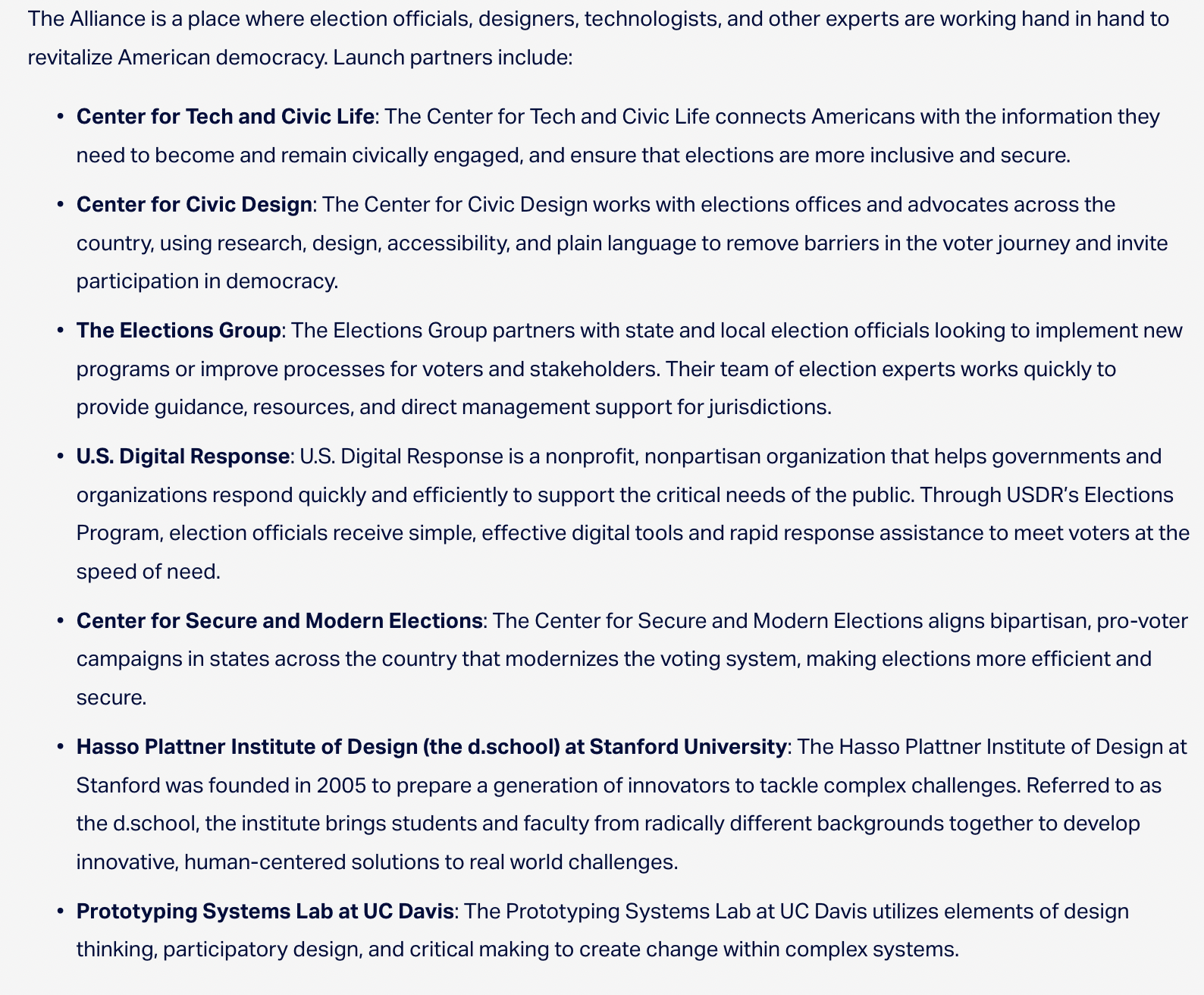 Bullet Points on U.S. Alliance for Election Excellence/https://www.electionexcellence.org/media/alliance-launch-ted2022
Bullet Points on U.S. Alliance for Election Excellence/https://www.electionexcellence.org/media/alliance-launch-ted2022
CTCL Floods States with Election Funding
Private funding played a huge role in the 2020 election. Many believe that the funding— much of it provided by Zuckerberg—tipped the election unfairly in favor of Biden and the Democrats. While CTCL's 2020 income tax return form indicates that it is a 501(c)(3) and did not participate in lobbying efforts, one could argue that the grants effectively manipulated elections because of the inequities in how and where the funds were used.
With many of the grants going to Democrat strongholds, the funds went to multiple initiatives, many of which would have had to be initiated by state legislatures in any other election. The pandemic was used as cover to justify the installation of drop boxes, mass mail-in ballots, and changes in all manner of election rules and laws, to name just a few. Influence Watch, the brainchild of Capital Research Center, examined CTCL's role in the election and found numerous areas where the grants were utilized.
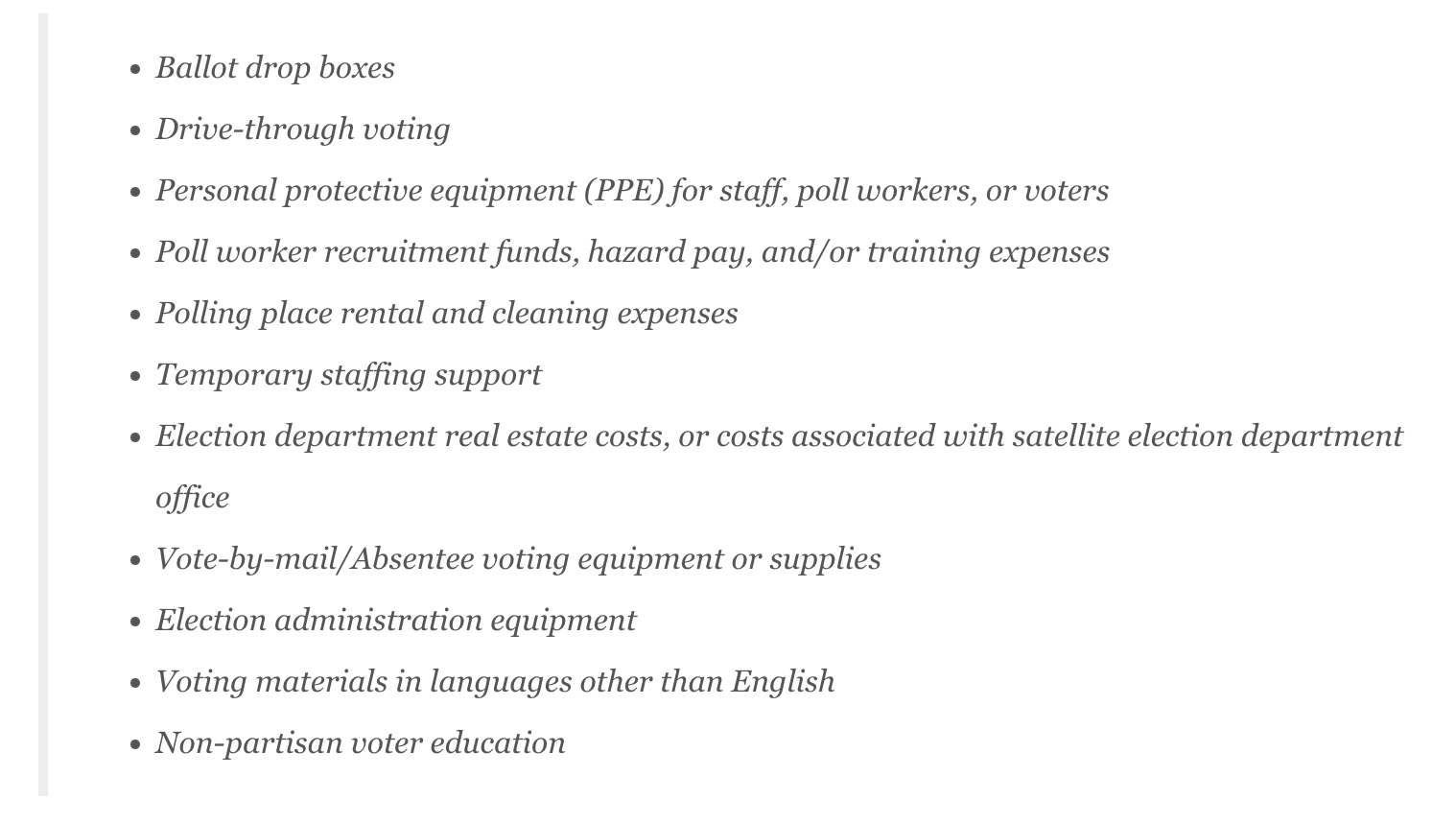 Where CTCL Grant Money Went/InfluenceWatch.org
Where CTCL Grant Money Went/InfluenceWatch.org
Influence Watch also used CTCL's "2020 IRS Form 990 disclosure to report the actual number of grants paid by state including the sums, while preserving the preliminary number reported by CTCL."
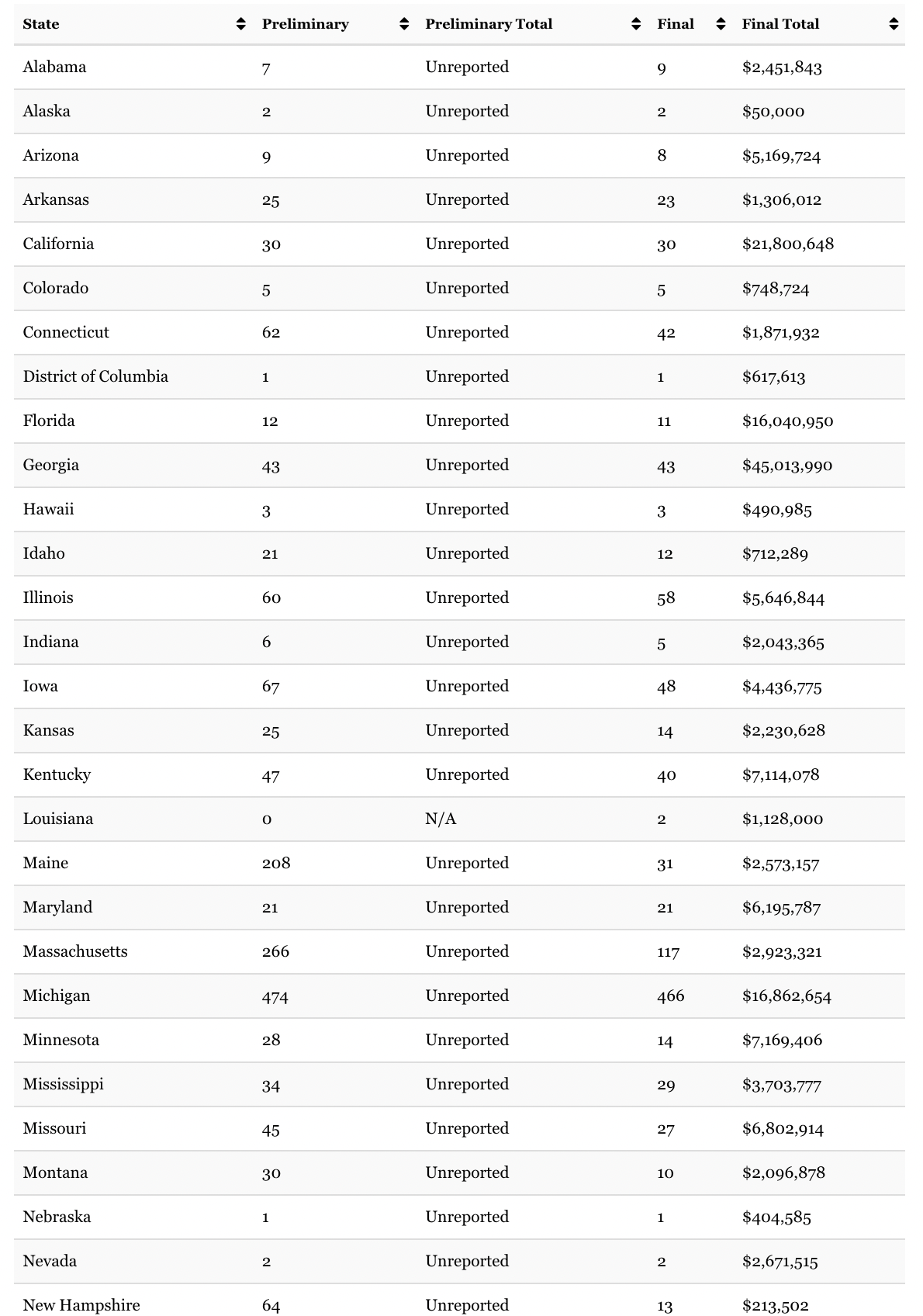
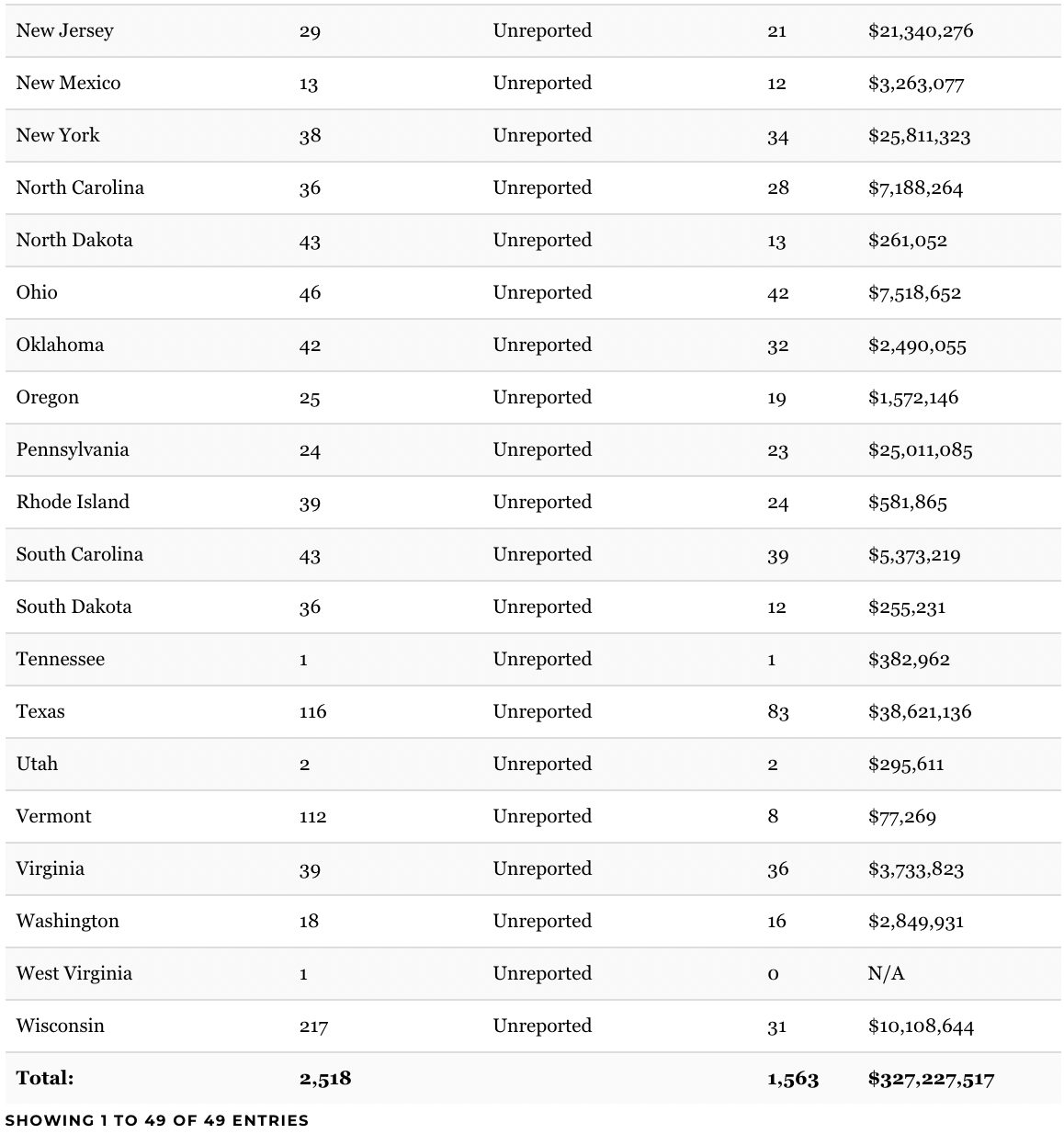 Influence Watch/States Receiving Grants/How Much
Influence Watch/States Receiving Grants/How Much
An updated look at the grant totals ranked by State found in an April 11, 2022 Capital Research article on states that were "flooded" with CTCL funding.
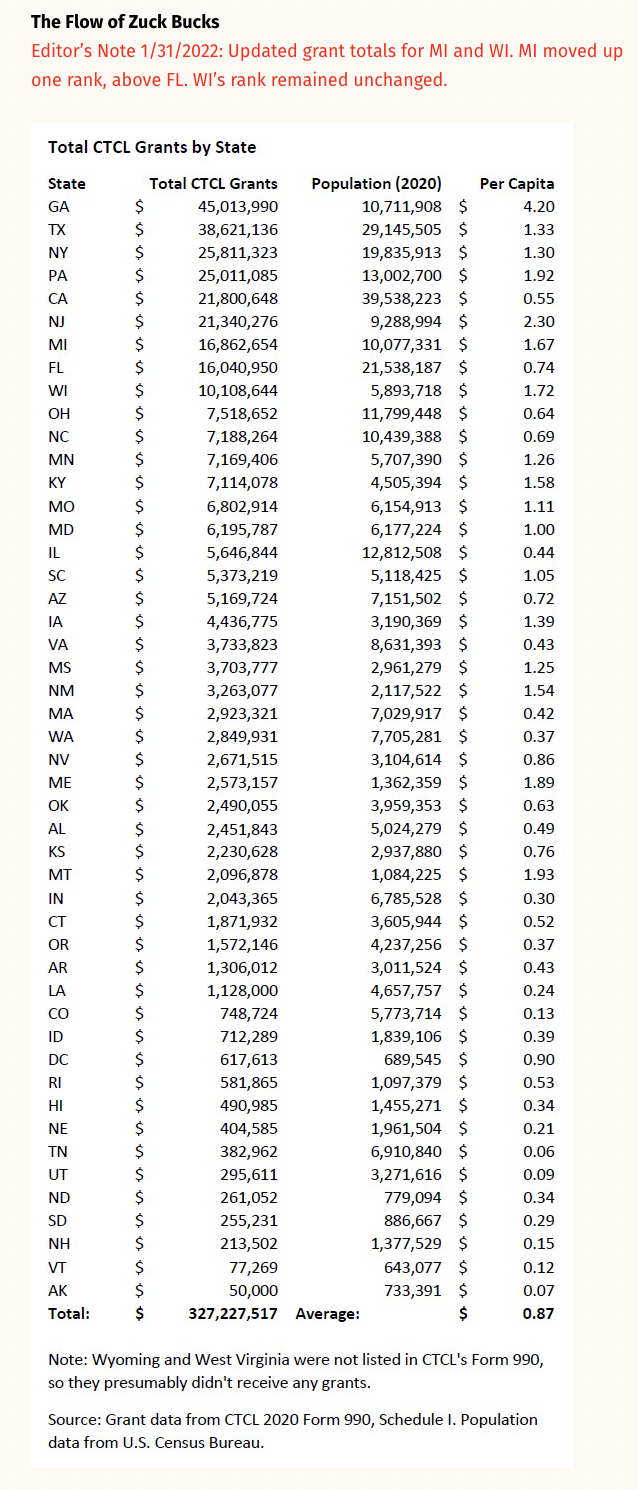 Zuckbucks/Flow of Grants to States/Capital Research Center
Zuckbucks/Flow of Grants to States/Capital Research Center
Private Funding of Elections Currently Set to Continue in 32 States
It is vitally important to note that, despite the findings from 2020, private funding of elections has only been restricted or banned in 18 states. This could set the stage for more shenanigans in future elections if legislatures fail to fully recognize the impact of private funding on elections. As of April of 2022, according to the Capital Research Center, only "18 states have banned or restricted the use of private funds for election offices and 6 governors—all Democrats—have vetoed potential bans. Wisconsin Gov. Tony Evers (D) has vetoed 2 Zuck buck bans; Kansas's legislature overrode its Democratic governor's veto."
While some states have sued various entities for the "unlawful private funding of elections," others seem to be unphased by the potential for the alleged inequitable results of "unregulated money injected into elections." For example, Louisiana's Attorney General, Jeff Landry, on April 5th, won his election integrity lawsuit in appeal, "reversing a lower court's decision in 2020." The court agreed that special interests should not pay for elections. Landry argues that private contributions advance specific interests and "sow distrust in the administration of the election system."
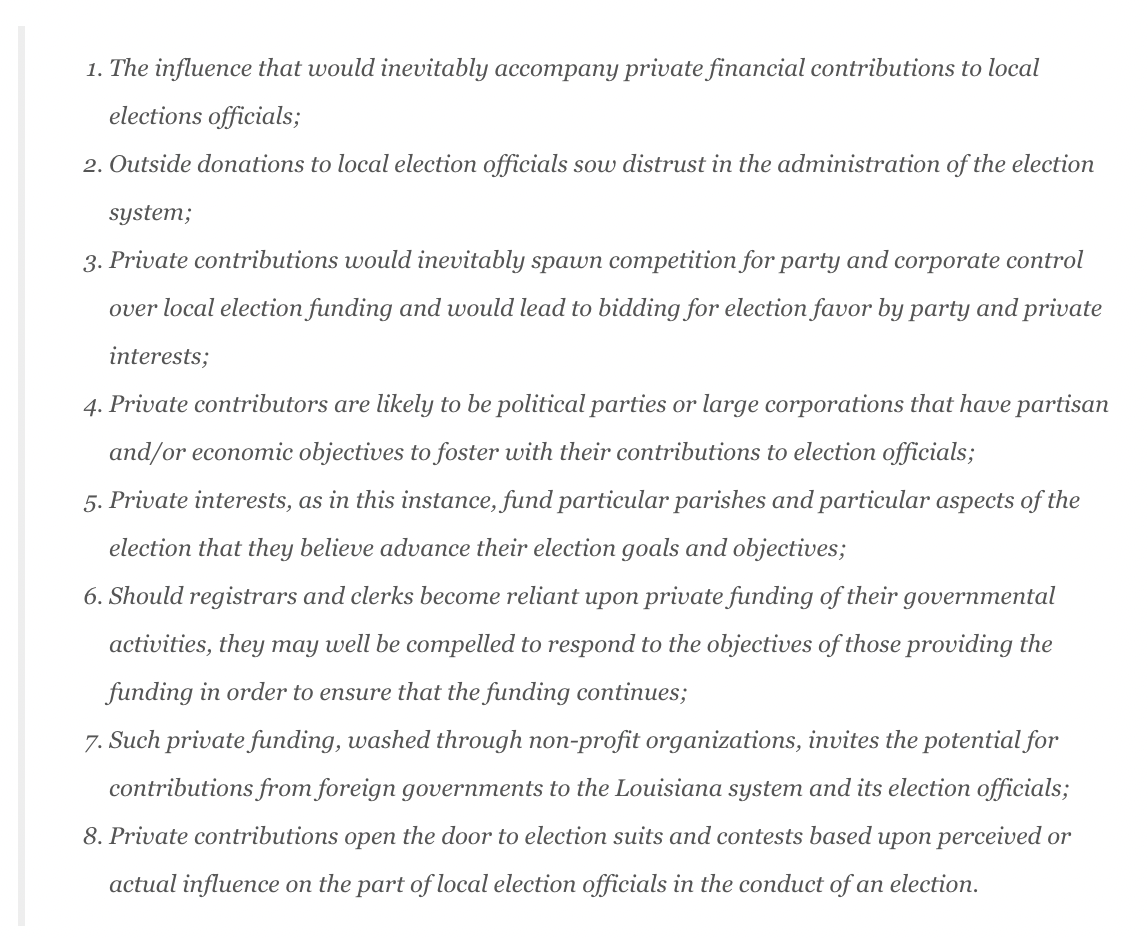 Louisiana Lawsuit/New Venture Fund/Capital Research
Louisiana Lawsuit/New Venture Fund/Capital Research
The six states that have considered bans but ultimately failed to ban or restrict private funding are; Louisiana, Michigan, Missouri, Montana, North Carolina, and Pennsylvania. A bill proposed in South Carolina has been stalled in committee. Minnesota has a bill in progress and, notably, Wisconsin, W. Virginia, and the red state of Texas "[regulate] but [do] not prohibit" private funding, according to Capital Research's analysis of states' legislation.
One update in Pennsylvania should be noted. On Monday, the State Government Committee in Pennsylvania advanced bills banning private funding of elections and eliminating drop boxes. The committee also voted to approve a bill that would "require that persons delivering mail-in ballots may only deliver such ballots at their county's primary office." PA Governor Tom Wolfe vetoed earlier versions of bills in the state in 2021. The bills in PA are set to advance to the Senate for consideration.
New York Congresswoman Claudia Tenney—who is running for re-election and currently serves as the Election Integrity Caucus Chairwoman—told Steve Bannon on his Tuesday show that Zuckerberg effectively "laundered" the money through a "501(3)(c)" with little or no oversight because "he didn't even disclose his 990 until December of 2021." Therefore, she continued, "There was no way to know how the money was spent" until well after the election. She has proposed an Act called the "End Zuckerbucks Act" to ban the flow of private funding for elections. Tenney stated:
"There is (sic) huge amounts to (sic) money put in that laundered through this 501(c)(3). And that's how they were able to prime the pump, get people out to vote, vote harvest, vote traffic in all these key zones just to edge Joe Biden over the line. Enough with only a 42,000, roughly 42,000, vote margin in the entire nation in these key swing states, which is what actually decided the election."
Tenney says she worries that Republicans are "not aggressive enough" on the "issue right now":
"It's really it's a real big thing. I don't trust Zuckerberg. I think somebody else, some other big tech oligarchs, [are] going to try to get in there because the Democrats know this is the difference between the diabolical Democrats and the Republicans. They know the red wave is coming. They know they can't win on policy. They are in the process of destroying whatever they can in this election process, everywhere, every state, every corner, whether it's redistricting, to make sure that the red wave doesn't hit the shores—which is why I started the Election Integrity Caucus and why every single member of Congress, especially every Republican, should be a member of this caucus."


